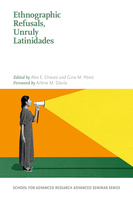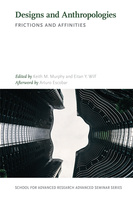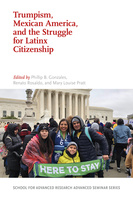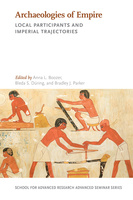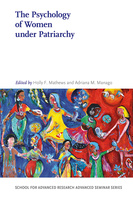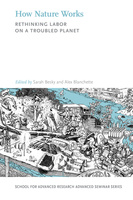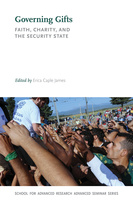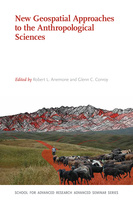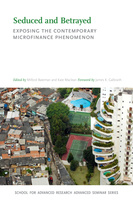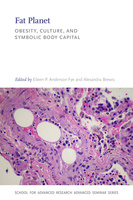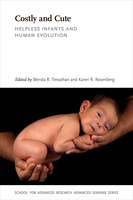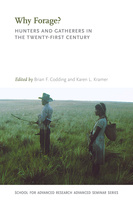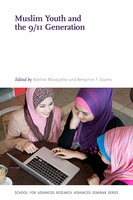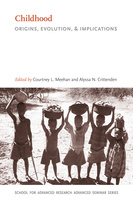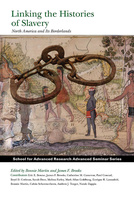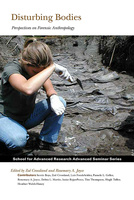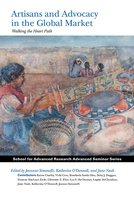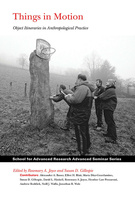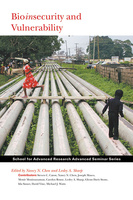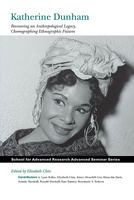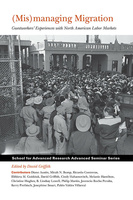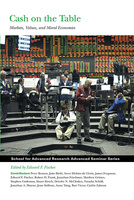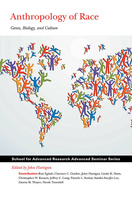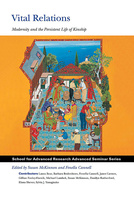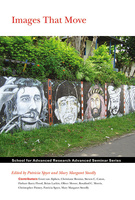The New Death
Mortality and Death Care in the Twenty-First Century
The New Death brings together scholars who are intrigued by today's rapidly changing death practices and attitudes.
Ethnographic Refusals, Unruly Latinidades
The essays in this collection do not offer simple solutions to histories of colonialism, patriarchy, and misogyny through which gender binaries and racial hierarches have been imposed and reproduced, but rather provide a crucial opportunity for reflection on and continued reimagination of the contours of Latinidad.
Designs and Anthropologies
Frictions and Affinities
The chapters in this captivating volume demonstrate the importance and power of design and the ubiquitous and forceful effects it has on human life within the study of anthropology.
Trumpism, Mexican America, and the Struggle for Latinx Citizenship
Driven by the overwhelming political urgency of the moment, the contributors to this volume seek to frame Trumpism's origins and political effects.
Archaeologies of Empire
Local Participants and Imperial Trajectories
This book demonstrates how archaeological research can contribute to our conceptualization of empires across disciplinary boundaries.
Walling In and Walling Out
Why Are We Building New Barriers to Divide Us?
The contributors to this volume illuminate the roles and uses of walls around the world--in contexts ranging from historic neighborhoods to contemporary national borders.
The Psychology of Women under Patriarchy
These feminist scholars bridge preexisting divides between bio-psychological, sociological, and cultural perspectives to explain the ways that women's desires, goals, and identities interact with culturally situated systems in order to develop more complex theories about the psychological underpinnings of patriarchy and to inform more socially progressive policies to improve the lives of women and men globally.
How Nature Works
Rethinking Labor on a Troubled Planet
The authors of this volume push ethnographic inquiry beyond the anthropocentric documentation of human work on nature in order to develop a language for thinking about how all labor is a collective ecological act.
Governing Gifts
Faith, Charity, and the Security State
Ultimately the book aims to expand the parameters of what has typically been a US-centric discussion of faith-based interventions as it explores the concepts of faith, charity, security, and governance within a global perspective.
Negotiating Structural Vulnerability in Cancer Control
The contributors utilize insights gained from studies on cancer to extend structural vulnerability beyond its original conceptualization to encompass spatiality, temporality, and biosocial shifts in both individual and institutional arrangements.
Puebloan Societies
Homology and Heterogeneity in Time and Space
Puebloan sociocultural formations of the past and present are the subject of the essays collected here.
New Geospatial Approaches to the Anthropological Sciences
Arguing that geospatial analysis holds great promise for much anthropological inquiry, the contributors have designed this volume to show how the powerful tools of GIScience can be used to benefit a variety of research programs.
Seduced and Betrayed
Exposing the Contemporary Microfinance Phenomenon
The contributors to this multidisciplinary volume consider the origins, evolution, and outcomes of microfinance from a variety of perspectives and contend that it has been an unsuccessful approach to development.
Fat Planet
Obesity, Culture, and Symbolic Body Capital
Fat Planet represents a collaborative effort to consider at a global scale what fat stigma is and what it does to people.
Costly and Cute
Helpless Infants and Human Evolution
The contributors to this volume propose that the "helpless infant" has played a role in human evolution equal in importance to those of "man the hunter" and "woman the gatherer."
Why Forage?
Hunters and Gatherers in the Twenty-First Century
Why Forage? shows that hunting and gathering continues to be a viable and vibrant way of life even in the twenty-first century.
Muslim Youth and the 9/11 Generation
The contributors to this volume--who draw from a variety of disciplines--show how the study of Muslim youth at this particular historical juncture is relevant to thinking about the anthropology of youth, the anthropology of Islamic and Muslim societies, and the post-9/11 world more generally.
Childhood
Origins, Evolution, and Implications
This collection is the first to specifically address our current understanding of the evolution of human childhood, which in turn significantly affects our interpretations of the evolution of family formation, social organization, cultural transmission, cognition, ontogeny, and the physical and socioemotional needs of children.
Linking the Histories of Slavery
North America and Its Borderlands
This volume has brought together scholars from anthropology, history, psychology, and ethnic studies to share their original research into the lesser-known stories of slavery in North America and reveal surprising parallels among slave cultures across the continent.
Disturbing Bodies
Perspectives on Forensic Anthropology
The theme of "disturbing bodies" has a double valence, evoking both the work that anthropologists do and also the ways in which the dead can, in turn, disturb the living through their material qualities, through dreams and other forms of presence, and through the political claims often articulated around them.
Artisans and Advocacy in the Global Market
Walking the Heart Path
Contributors to this book explore how crafts -- pottery, weaving, basketmaking, storytelling -- in Middle America and beyond are a means of making an intangible cultural heritage visible, material, and enduring. Each contribution shows how social science research can evolve into advocacy, collaboration, and friendship.
Things in Motion
Object Itineraries in Anthropological Practice
Complementing the concept of object biography, the contributors to this volume use the complex construct of "itineraries" to trace the places in which objects come to rest or are active, the routes through which things circulate, and the means by which they are moved.
Bioinsecurity and Vulnerability
"Biosecurity" has ballooned into an increasingly mundane aspect of human experience, serving as a catchall for the detection, surveillance, containment, and deflection of everything from epidemics and natural disasters to resource scarcities and political insurgencies.
Katherine Dunham
Recovering an Anthropological Legacy, Choreographing Ethnographic Futures
This book explores Katherine Dunham's contribution to anthropology and the ongoing relevance of her ideas and methodologies, rejecting the idea that art and academics need to be cleanly separated from each other.
(Mis)managing Migration
Guestworkers' Experiences with North American Labor Markets
Today managed migration is growing in North America. This mirrors the general growth of migration from poorer to richer countries, with more than 200 million people now living outside their natal countries. Faced with this phenomenon, managed migration enables nation-states to regulate those population movements; direct foreign nationals to specific, identified economic sectors that citizens are less likely to care about; match employers who claim labor shortages with highly motivated workers; and offer people from poorer countries higher earning potential abroad through temporary absence from their families and homelands.
Cash on the Table
Markets, Values, and Moral Economies
A great deal is at stake in understanding the moral dimensions of economic behavior and markets. Public debates over executive compensation, the fair trade movement, and recent academic inquiries into the limitations of rational-choice paradigms all point to the relevance of moral values in our economic decision-making processes. Moral values inform economic behavior.
Street Economies in the Urban Global South
This book focuses on the economic, political, social, and cultural dynamics of street economies across the urban Global South. Although contestations over public space have a long history, Street Economies in the Urban Global South presents the argument that the recent conjuncture of neoliberal economic policies and unprecedented urban growth in the Global South has changed the equation.
Anthropology of Race
Genes, Biology, and Culture
What do we know about race today? After years of debate and inquiry by anthropologists, the question remains fraught with emotion and the answer remains complicated and uncertain. Anthropology of Race confronts the challenge of formulating an effective rejoinder to new arguments and new data about race, and attempts to address the intense desire to understand race and why it matters.
Vital Relations
Modernity and the Persistent Life of Kinship
For more than 150 years, theories of social evolution, development, and modernity have been unanimous in their assumption that kinship organizes simpler, "traditional," pre-state societies but not complex, "modern," state societies. And these theories have been unanimous in their presupposition that within modern state-based societies kinship has been relegated to the domestic domain, has lost its economic and political functions, has retained no organizing force in modern political and economic structures and processes, and has become secularized and rationalized. Vital Relations challenges these notions.
Images That Move
Images play a significant part in projects of "poetic world-making" and political transformation. They participate in the production of commensuration or of incommensurability, enact moments of prophecy or exposure, and attract or repel spectators' attention. But any examination of images in motion must also recognize the blockages and breakdowns that prevent their movement, as well as the enframings or "stickinesses" that trap them in particular places and prevent them from reaching others.


